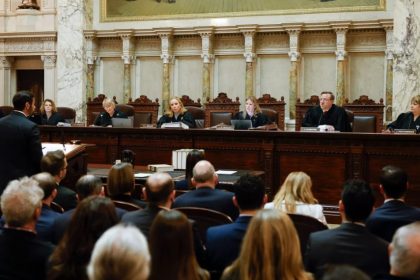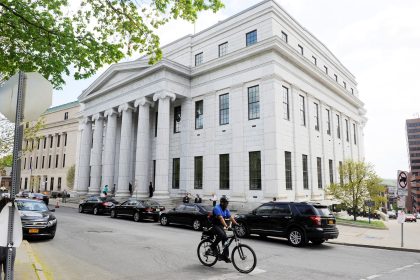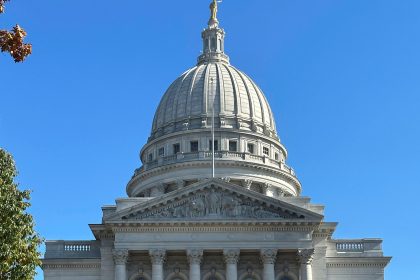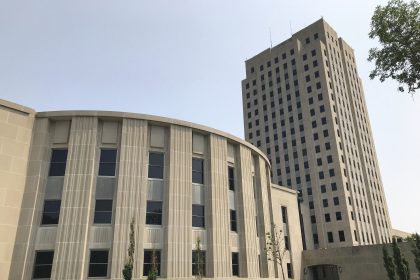Justices Appear Ready to Restore GOP District Map in SC
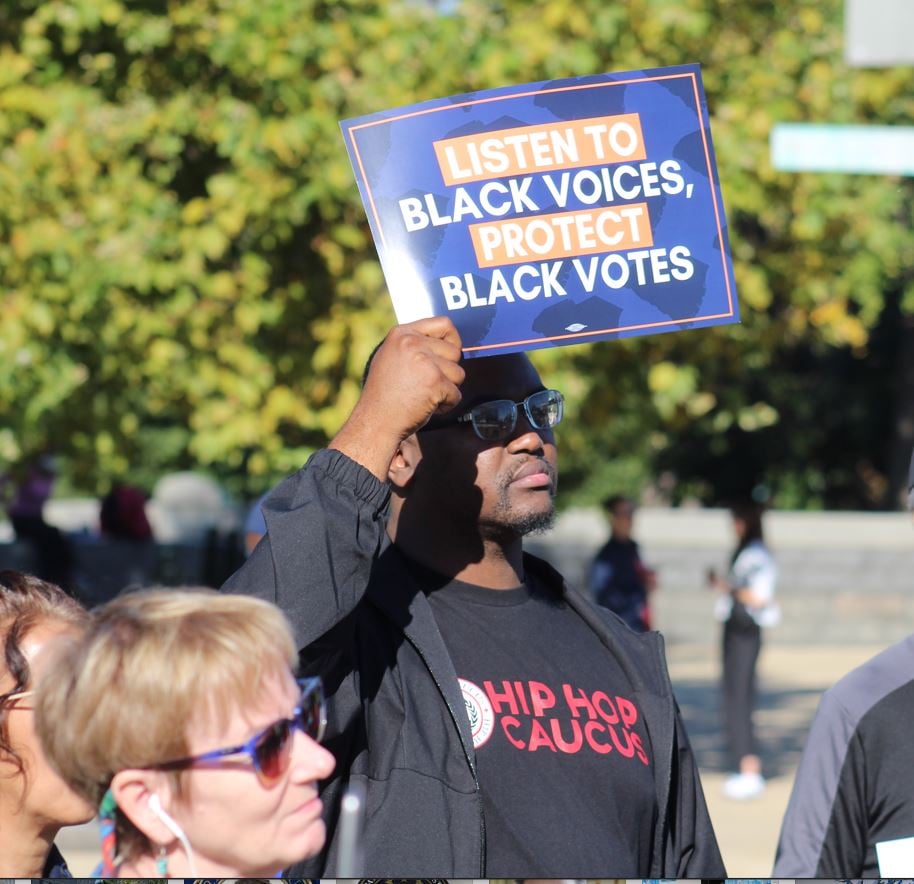
WASHINGTON — The Supreme Court’s conservative majority on Wednesday expressed skepticism at claims that a Republican-drawn congressional district map in South Carolina is an unlawful racial gerrymander, setting the stage for restoration ahead of the 2024 election.
A three-judge panel in South Carolina blocked the use of the map after it concluded Republican lawmakers purposefully moved Blacks out of the state’s 1st Congressional District in order to give the district a distinct tilt toward members of their party.
Before the lines were redrawn following the 2020 Census, the district’s current representative, Republican Nancy Mace, only defeated incumbent Democratic Rep. Joe Cunningham, by just over 1 percentage point — or about 5,400 votes.
After redistricting, Mace’s margin of victory in her 2022 reelection bid was 14 percentage points.
As previously reported by The Well News, after the 2020 Census state lawmakers had to redraw South Carolina’s seven congressional districts so that each contained a roughly equal population of about 730,000 people.
The census also revealed that using that measure, the 1st Congressional District, which encompasses a number of South Carolina’s fastest-growing coastal communities, was overpopulated by about 88,000 persons, while the neighboring 6th Congressional District, a so-called “opportunity” district under the Voting Rights Act currently represented by Rep. James Clyburn, D-S.C., was underpopulated by about 85,000 residents.
Instead of simply moving the district lines to equalize the number of people in each district, Will Roberts, a cartographer on the state Senate’s staff, moved 53,000 residents from the 6th Congressional District to the 1st Congressional District, then moved 140,000 residents from District 1 to District 6.
Republican Gov. Henry McMaster signed the redistricting plan into law in January 2022.
Shortly thereafter, the South Carolina State Conference of the NAACP and Taiwan Scott, a Black voter who lives in the district, sued, arguing that the 1st Congressional District and two others, the state’s 2nd and 5th Congressional Districts, were unconstitutional racial gerrymanders that were drawn to intentionally dilute Black voting strength.
In January, the three-judge panel ultimately ruled against the plaintiffs in federal court in regard to the latter two districts, but ruled in their favor when it came to the 1st Congressional District.
In doing so, it found that race was the “predominant motivating factor” in the drawing of the district’s lines and it enjoined the state from holding elections with the district in its current configuration.
Under federal law, any decision by a three-judge panel is appealable directly to the Supreme Court, and the court has to accept the case and rule on the merits.
South Carolina availed itself of that right, setting the stage for Wednesday’s hearing. The case is Alexander v. South Carolina Conference of the NAACP.
But almost from the get-go, Caroline Flynn, an attorney in the solicitor general’s office who argued on behalf of the Biden administration, and Leah Aden, who argued on behalf of the NAACP of South Carolina, found themselves playing defense under sometimes withering questioning from the court’s more conservative justices.
They also faced sharp questioning from Chief Justice John Roberts, a more center-right justice, who could cast a crucial vote when the case is decided.
Roberts’ main concern revolved around a central theme of the state’s argument — that the lower court erred by not effectively forcing the plaintiffs to make their case with hard evidence and by neglecting to make them produce a redistricting plan they liked better.
“We’ve never had a case where there’s been no direct evidence, no map, no strangely configured districts, a very large amount of political evidence, whether the district court chose to credit it or not, and instead it’s all resting on circumstantial evidence,” Roberts said at one point to Alden.
“I’m not saying you can’t get there, but it does seem that this would be breaking new ground in our voting rights jurisprudence,” he said.
Justice Sonia Sotomayor did her best to try and bail the respondents out, observing that based on a previous ruling by the court — in a 2017 redistricting case out of North Carolina — it was “clear that you don’t need a smoking gun” to prove district lines are unconstitutional.
“And if you don’t need a smoking gun, you don’t need direct evidence,” she said.
Both Justices Elena Kagan and Ketanji Brown Jackson tried a different tack, asserting during their questions that the case wasn’t decided in the plaintiffs’ favor because the lower court accepted their position, but rather that it simply didn’t believe the state’s claims.
“It made a credibility judgment,” Kagan said. “Your mapmaker gets up on the stand and knows this racial data like the back of his hand, and the court says, ‘I just don’t believe that they were not looking at the racial data that was right there in front of them for the purpose of making their gerrymander more secure.’”
Jackson, meanwhile, questioned how the percentage of Black voters could remain exactly the same — roughly 17% — after thousands of area residents were shuffled in and out of the 1st Congressional District.
Aden maintained throughout that the record “reflects that there was a racial target, it reflects that there was a significant sorting of Black people, it reflects unrebutted expert evidence of race rather than party explaining the assignment of voters.”
John Gore, who argued on behalf of South Carolina, responded by saying, “mere awareness of race does not prove racial dominance.”
Throughout the hearing, Justice Samuel Alito appeared to be the most skeptical justice when it came to the respondent’s arguments, and he noted that the Supreme Court was in no way obligated to simply “rubber-stamp” the lower court rulings.
“Particularly in a case in which the basis for a judgment in favor of the prevailing party relies very heavily, if not entirely, on expert reports, the methodology of which can be examined,” he said.
Later, he also appeared to try to answer Jackson’s question on the stickiness of the percentage of Black voters in the district.
“If they are disregarding race entirely and looking only at politics, where race and politics are so closely aligned, it isn’t surprising that when you want to get a district that has a certain Republican percentage, you’re going to get a district that has a steady [Black voting age population],” he said.
Justice Neil Gorsuch noted that legislatures can use party to achieve political goals under the Supreme Court’s prior decisions, and suggested he found the absence of an alternative map promoted by the plaintiffs in the underlying lawsuit disturbing.
“The plaintiff bears the burden of overcoming a good-faith presumption that the legislature is doing just what it says,” he said. “How do you prove that they are acting in bad faith without showing that they could achieve their objective some different way?”
Outside the Supreme Court building, about 50 people gathered to rally in support of the plaintiffs in the case and South Carolina voters more generally.
Among them was Michael B. Moore, a Democrat who is running against Mace next year.
Moore is the great-great-grandson of Robert Smalls who freed himself and several others from slavery during the Civil War by commandeering a Confederate transport ship, CSS Planter, in Charleston Harbor, in May 1862, and sailing it from the Confederate-controlled waters of the harbor to the U.S. blockade that surrounded it.
His example and persuasion helped convince President Abraham Lincoln to accept African American soldiers into the Union Army, and after the war Smalls was elected to S.C. Legislature and the U.S. House of Representatives during the Reconstruction era.
“Smalls,” Moore said, “emerged as a beacon of hope” through his actions.
“He served in both houses of the South Carolina Legislature where, among other things, he wrote the legislation to create the first free compulsory statewide public school system in the entire nation,” his descendant recalled. “He then went on to serve five terms in Congress.
“But in 1884, his district was gerrymandered by extreme politicians who sought to mute his influence and silence the voices of those he represented. Sound familiar?” Moore said.
“Now in 2023, I find myself here on the steps of the Supreme Court fervently advocating for the voting rights of thousands of Lowcountry residents, many of whom are likely are descended from the people that I think my grandfather served back in the day, and again, these communities have been unjustly deprived of their voice in Congress,” he said.
“One person, one vote is the cornerstone of our nation,” Moore continued.
“When we forsake this principle, it’s a moral failure unbecoming of us as Americans,” he said.
Katherine Cummings, a longtime community organizer and champion of civil rights in South Carolina said the nation is facing a fundamental “crisis of democracy.”
“We have to protect our right to citizenship. We have to protect our right to vote and the right to have our votes counted,” she said.
“Today, people are trying to drown out our voices, and they’re challenging us, asking, ‘What is it that you’re really trying to build?’ And what I say in response is, ‘If our end goal is democracy, one person, one vote, is gerrymandering the path that is going to take us there?’”
The crowd responded with a loud “No.”
“So we stand here today from all parts of South Carolina and other states and ask the Supreme Court to ask itself that same question. Our state and our nation is watching,” Cummings said.
Charles Mann, field coordinator for SC Counts, a grassroots group that prepares local residents to participate in the decennial redistricting process, said, “We are here today to loudly protest racial gerrymandering by the state legislature of South Carolina. We are here today to support and loudly advocate for fair maps in South Carolina. We’re here to say to our Legislature, ‘We want the right to select our congressional representatives of choice, not yours,’” Mann said.
“As I thought about this today, I couldn’t help but think about the segregation fight of 1895 in the state of South Carolina,” he continued. “It was then that the White segregationists, led by state Sen. Ben “Pitchfork” Tillman, rewrote the playbook in my home state.
“The main purpose of rewriting the state constitution was, of course, to take away the voting rights of Blacks. And it was also to disenfranchise Black voters and undo the gains of reconstruction, socially and politically. And guess what? They succeeded.
“Now, over 125 years later, and after the gains of the 1965 Voting Rights Act, we’re here at this Supreme Court to once again fight for the voting rights of Black South Carolinians in the face of a state that wants to take them away,” Mann said.
“That’s why we are here today. Because our ancestors stood against White oppression in 1895, we must stand against oppression and racial gerrymandering in 2023. And this time, we will win,” he said.
Dan can be reached at [email protected] and at https://twitter.com/DanMcCue



















